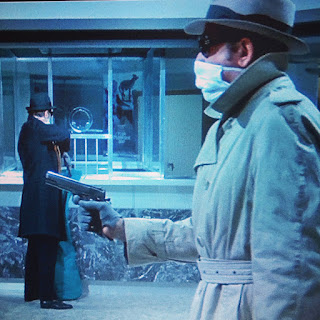my translation
===
VI. Les phares - The Flowers of Evil
[VI. The Beacons] [Les fleurs du mal]
Rubens, river of oblivion, garden of sloth,
Pillow of cool flesh where one cannot love,
But where life rushes and writhes endlessly,
As the air in the sky and the sea within the sea;
Leonardo da Vinci, mirror deep and dark,
Where charming angels, with a sweet smile
Charged wholly with mystery, appear in the shadow
Of the glaciers and pines that close up their country;
Rembrandt, sad hospital all filled with murmurs,
And decorated solely with a great crucifix,
Where tearful prayer rises from garbage,
Abruptly traversed by a wintry beam;
Michelangelo, vague location where one eyes various Hercules
Mingling with Christs, and raising fully upright
From powerful ghosts which in the twilights
Tear their shroud as they stretch out their fingers;
Boxer's rages, faun's impertinences,
You who knew how to round up the beauty of the boors,
Large heart swollen with pride, man sickly and yellow,
Puget, melancholic emperor of the convicts;
Watteau, that carnival where many illustrious hearts,
Like butterflies, wander aflame,
Cool, light settings illuminated by way of candelabras
Slipping into madness at this whirling dance-party;
Goya, nightmare replete with unknown things,
Of fetuses cooked in the midst of sabbaths,
Of old women in the mirror and of children in the nude,
Working at their stockings in order to tempt demons;
Delacroix, lake of blood haunted by bad angels,
Shaded by a wood of evergreen firs,
Where, beneath a pained sky, strange fanfares
Pass, like one of Weber's stifled sighs;
These curses, these blasphemies, these wails,
These ecstasies, these cries, these tears, these
Te Deums,
Are an echo spoken back by a thousand labyrinths;
For mortal hearts, they are a divine opium!
They are a cry repeated by a thousand sentinels,
An order sent back by a thousand megaphones;
They are a beacon lit over a thousand citadels,
A call from hunters lost in the great woods!
For it is true, Lord, the best testimony
That we are able to bestow upon your dignity
Is this ardent moan rolling throughout the ages
Dying on the shore of your eternity!
====










